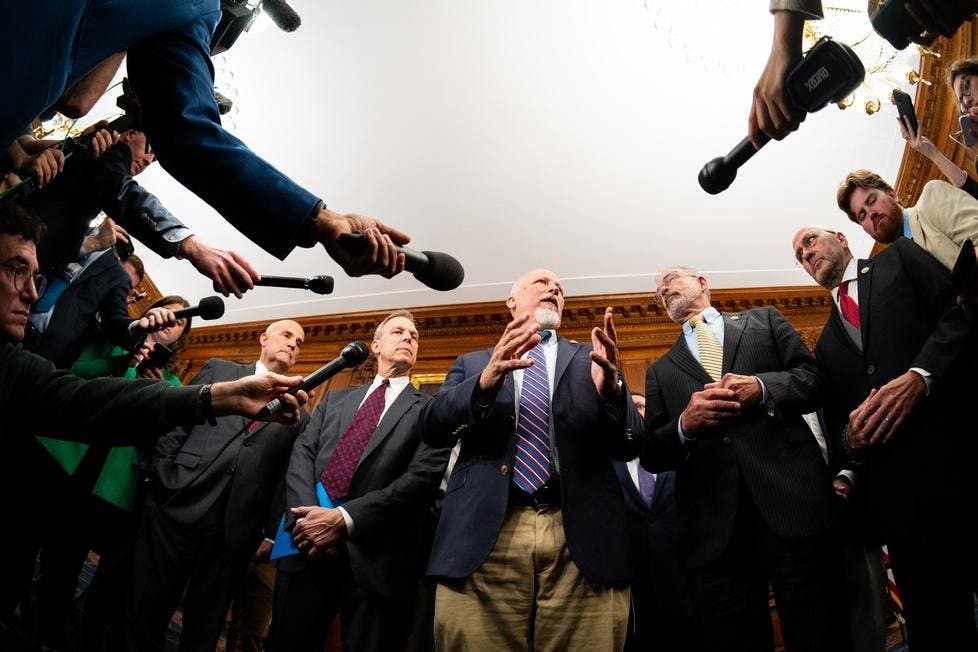Early Thursday morning, the U.S. House of Representatives passed President Donald Trump’s audacious One Big Beautiful Bill Act in a razor-thin 215 to 214 vote, setting the stage for a seismic shift in U.S. tax policy. This 1,116-page behemoth, now headed to the Senate, seeks to cement the 2017 Tax Cuts and Jobs Act while rolling out bold new tax breaks for families, workers, and businesses.
With a price tag topping $5 trillion, the bill promises immediate relief but ignites fierce debate over its long-term fiscal impact. Here’s what you need to know about its game-changing provisions, potential pitfalls, and what’s next for taxpayers and entrepreneurs.
Tax Changes For Individuals And Families
The bill’s cornerstone is the permanent extension of the 2017 TCJA, locking in the top individual income tax rate at 37% instead of reverting to 39.6% after. The House Ways and Means Committee estimates this could boost take-home pay for a median-income family with two children by $4,000 to $5,000 annually and increase real wages by $2,100 to $3,300 per worker, though economic conditions may vary these gains.
From 2025 to 2028, the bill eliminates federal income taxes on tips, overtime pay, and interest on loans for American-made cars, providing relief to service workers, hourly employees, and auto buyers. Households earning $30,000 to $80,000 annually could save up to $5,000 a year if they benefit from multiple exemptions—such as a tipped worker with significant tip income, an hourly worker earning overtime, and a family financing an American-made car—though savings vary based on individual circumstances.
The Child Tax Credit will rise from $2,000 to $2,500 per child through 2028, then revert to $2,000 and adjust for inflation. The refundable portion is capped at $1,400 per child, as noted in a recent Kiplinger report.
A new requirement for both parents to have valid Social Security numbers for joint filings may exclude some citizen or legal resident children, though the exact number—previously estimated at 4.5 million—remains unconfirmed and requires further analysis. Seniors over 65 will gain a $4,000 tax deduction from 2025 to 2028, complementing their existing higher standard deduction, providing significant relief for retirees.
Support For Small Businesses And New Savings Options
Entrepreneurs are poised to benefit significantly. The bill enhances the Section 199A deduction for qualified business income from 20% to 23%, lowering the effective tax rate to 28.49% and making it permanent. Combined with immediate expensing of business investments, this could impact around 26 million small business owners, according to a news release from the Job Creators Network.
The bill also introduces “MAGA accounts,” tax-advantaged savings plans for children. These accounts may include a government contribution of up to $1,000 for babies born between 2025 and 2028, as outlined in Investopedia, and allow families to contribute up to $5,000 annually. Funds can be used tax-free for higher education, post-secondary credentials, small business loans, or first-time home purchases.
Fiscal Trade-Offs And Economic Concerns
The bill’s tax cuts are projected to cost over $5 trillion over a decade, per early estimates from the Joint Committee on Taxation, and could add $3.3 trillion to $5.3 trillion to the national debt, according to the Committee for a Responsible Federal Budget. To offset this, the bill repeals clean energy incentives, including the $7,500 clean vehicle credit, set to end on December 31, 2025, potentially increasing costs for electric vehicle buyers and renewable energy investors.
A new 5% excise tax on international remittances by non-citizens, including green card and H1B visa holders, will raise the cost of sending money abroad, impacting immigrant families. Additionally, the bill replaces the 1.4% excise tax on private college endowments with a tiered system, reaching up to 21% for endowments exceeding $2 million per student, and imposes a 21% tax on nonprofit organizations’ sale or licensing of names and logos, which could strain their budgets.
What This Means For Taxpayers
Middle-class families, service workers, small business owners, and retirees stand to gain immediately from tax exemptions, the expanded CTC, and seniors’ deductions. The National Federation of Independent Business, in a letter shared on X, hailed it as one of the most pro-small business tax bills in recent history. However, the repeal of clean energy credits may deter sustainable investments, and the remittance tax could disproportionately affect immigrant communities.
The bill now heads to the Senate, where the budget reconciliation process, requiring only 51 votes, could expedite passage. Critics, including Democrats and fiscal conservatives, warn that the debt increase could drive higher interest rates or necessitate future tax hikes, with proposed spending cuts, like Medicaid work requirements starting in 2029, offering only partial relief. Proponents argue that economic growth spurred by the tax cuts will mitigate debt concerns, though this remains speculative.
Securities offered through Kestra Investment Services, LLC, (Kestra IS), member FINRA/SIPC. Investment Advisory Services offered through Kestra Advisory Services, LLC, (Kestra AS) an affiliate of Kestra IS. Beacon Financial Services is not affiliated with Kestra IS or Kestra AS. Beacon Financial Services does not provide legal or tax advice. https://www.kestrafinancial.com/disclosures
Read the full article here
















